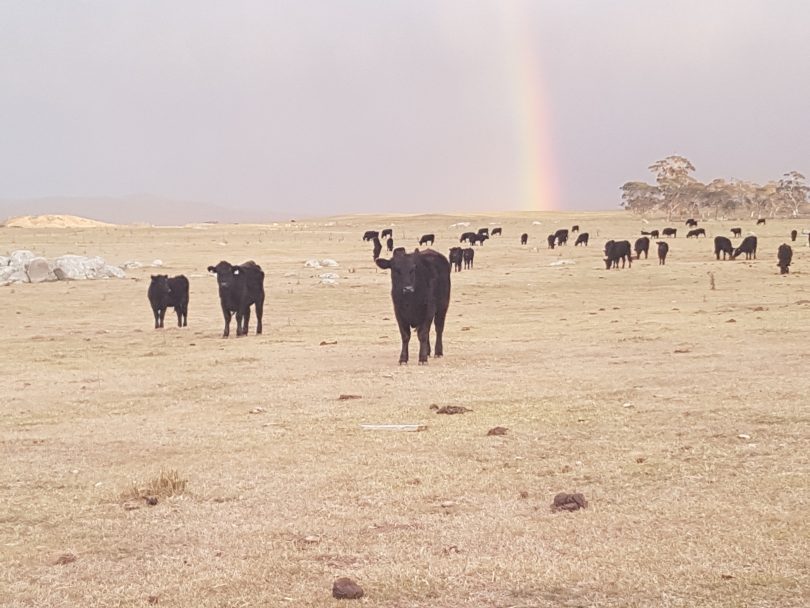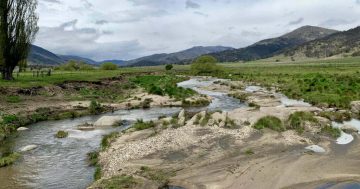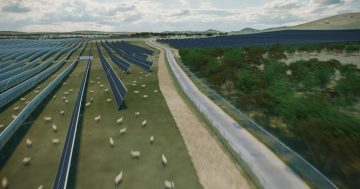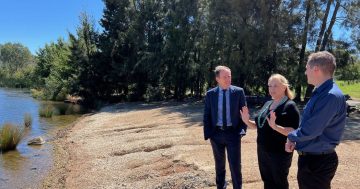
Drought continues to grip the ACT and surrounding region. Photo: File.
As the ACT Government this week doubled the transport subsidy for farmers, the ACT Rural Landholders’ Association says the government is doing all it can to assist farmers affected by the current dry conditions in the region.
While the ACT is still some way off being in drought, the Queanbeyan-Palerang shire is one of three areas in NSW to be declared ‘drought-affected’.
The government has increased transport subsidies for eligible ACT rural landholders from $20,000 up to $40,000 for the transport of fodder, water and stock.
The $150,000 ACT Farmer’s Support Package, first made available to rural landowners in the ACT in 2018, has been extended into 2019-20. It follows the 2018/19 ACT Rural Resilience Grants and the 2018-9 Transport Subsidy.
The President of the ACT Rural Landholders’ Association, Tom Allen, told Region Media that the Territory’s 184 rural landowners will welcome the additional measures.
“Farmers are very good at spending money, so these grants will definitely circulate back into the local economy and help keep local farmers in business,” Mr Allen said.
He said that only about 30 rural landowners in the ACT make a living from their farms and are doing much better than their counterparts in the west of NSW.
“It’s only fair that we have what the NSW people get, but I’ve suggested that if anyone wants to help a farmer, just think about the ones out at Wagga, Dubbo or Temora. They’re the ones who are really doing it tough.”
Mr Allen said the ACT Government had consulted with them earlier this year about the additional grants, so it was good to see it signed off ahead of the Federal Government’s $500 million drought stimulus package.
Last financial year, 26 projects were funded to a total value of $141,900.
Chief Minister Andrew Barr said his government was doing all it could to support rural landholders in the ACT.
“The transport subsidy now also includes transporting farm chemicals, fertiliser and seed to farms with unlimited distance for new applications during the 2019-20 financial year,” Mr Barr said.
“Transport freight subsidies will help farmers who are being forced to source expensive feed for their stock.”
The 2019/20 ACT Rural Resilience Grants grant program also allows up to $150,000 for rural landholders to undertake drought resilience activities. Applications can be from individuals or groups of landholders.
The grants of up to $10,000 each assist with on-ground works and infrastructure that increase the resilience of a rural property to climate weather events.
The recent round of grants assisted 17 projects for landholders to improve their stock water through constructing or de-silting dams, installing bores and tanks, installing pipes and troughs to extend water into areas where dams have dried up, and accessing off-stream water through the construction of pumps, pipes and troughs.
A further seven projects assisted landholders to construct silos and hay sheds.
ACT rural landholders can also seek a 25 per cent rebate on expenditure for emergency stock water infrastructure.
Minister for the Environment and Heritage Mick Gentleman said the government has worked extensively with farmers in recent years to build their resilience when dealing with dry conditions associated with climate change.
“Low rainfall and higher than normal temperatures are continuing to impact farmers in our region,” Mr Gentleman said.
“We have made $150,000 of new ACT Rural Resilience grants available to ACT rural landholders to increase their knowledge and skills and improve farm infrastructure to better manage dry times.”
An Environment, Planning and Sustainable Development Directorate spokesperson also told Region Media that rural leaseholders can take advantage of short term leases of equipment for relief purposes where possible.
A support package for ACT farmers was also launched in August last year which provides a subsidy of up to $20,000 for the transport of fodder and/or water to a property, as well as the movement of stock to and from agistment outside the ACT for sale or slaughter.
More information on the support package including application guidelines is on the ACT Government website.
These latest measures come as an ANU professor warned that Canberrans should not rule out paying an even higher price for water.


















